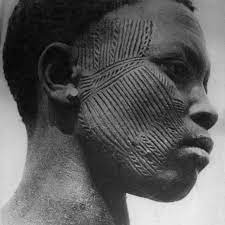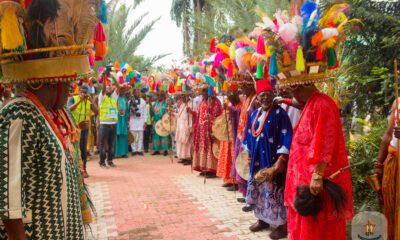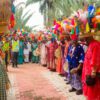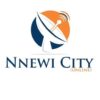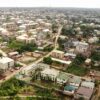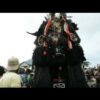History and heritage
Ndikelionwu, Anambra State || History, Culture and Other Things
Ndikelionwu is a historic town in Anambra State, Nigeria. Explore its origins, culture, festivals, leadership, and notable people, giving you a full picture of its heritage and modern life.
Ndikelionwu, Anambra State
Ndikelionwu, a historic town in Anambra State, Nigeria is a vibrant community where history, culture and tradition converge. Situated in Orumba North Local Government Area, Ndikelionwu traces its roots to early migrations from Aro land, giving the town a unique blend of Igbo and Aro heritage.
Known for its lively Ikeji Festival, traditional leadership and the legacy of renowned figures such as Prof. Chukwuemeka Ike, Ndikelionwu stands as a symbol of resilience, cultural pride and intellectual achievement.
This article takes you on a journey through Ndikelionwu’s rich past, exploring its founding, evolution, social structure, cultural festivals and notable personalities.
Whether you are a history enthusiast, a cultural explorer or simply curious about Nigeria’s hidden gems, this offers a comprehensive look at Ndikelionwu – a town where tradition meets modernity, and heritage shapes the present.
History of Ndikelionwu

Ndikelionwu Archives
The origin of Ndikelionwu is deeply rooted in Igbo-Aro history, tracing back to the early 18th century. Historical and genealogical accounts suggest the town was founded between 1701 and 1750.
Its founding is closely linked to Ikelionwu Ufere who, according to tradition, migrated from Ibom in Arochukwu to the area that later became Ndikelionwu. He is remembered not just as a settler but as a transformative leader. Local oral histories say he established a base with assistance from Egenti Ezewusie, a leader of the Omogho community.
One of the most notable contributions of Ikelionwu was his introduction of firearms to the region. He is said to have procured guns from Portuguese traders which he used in alliance with Egenti Ezewusie to defend their territory.
Ikelionwu’s lineage became the foundation of Ndikelionwu’s ruling dynasty. He had seven sons, namely, Ufere Ike, Okoli Ike, Kanu Ike, Akpaka Ike, Ijeoma Ike, Ike Nwa Ike and Okafor Ike whose descendants make up the major lineages of the town.
By the 19th century, Ndikelionwu had evolved beyond a small settlement to become a kingdom with significant regional influence. Its authority stretched into parts of what is now Orumba North LGA and even toward Onitsha, demonstrating that its reach went well beyond its immediate locality.
One of the most legendary rulers of this period was HRH Lord Okoli Ijeoma (also spelled Ijoma) who became king in the mid-1800s. According to tradition, Okoli Ijeoma was a warrior-merchant who recruited military forces, including people from the Ada region to defend and expand his territory. His reign reportedly lasted from 1856 until external pressures such as increasing British influence altered the political landscape.
There is more than just oral tradition to support Ndikelionwu history. A document from 1828, preserved at the National Archives in Enugu mentions Ikelionwu, providing historical validation for his role and the town’s significance by that time.
Genealogical records tie Ikelionwu’s ancestry to earlier Aro expansions and significant Igbo lineages. His story, from an Arochukwu migrant to a founder of a powerful settlement captures a critical part of how Aro influence spread into what is today Anambra State.
The name Ndikelionwu itself reflects its origin: “Ndi-Ikelionwu” means people of Ikelionwu, underscoring how its identity is built on his legacy. Over generations, the descendants of Ikelionwu have maintained royal lineage, and this heritage continues to shape the community’s structure and self-understanding.
Even today, the story of Ikelionwu Ufere, his settlement, his sons and his descendants carries great weight in Ndikelionwu’s collective memory. His life, from migration, through conflict, to founding a kingdom is central to how the town views its past and defines its identity.
Geography and Demographics of Ndikelionwu
Ndikelionwu is a town located in the Orumba North Local Government Area of Anambra State, in southeastern Nigeria. Geographically, its coordinates are approximately 6.08294° N latitude and 7.13737° E longitude, with an elevation around 82 meters (269 feet) above sea level.
According to local sources, Ndikelionwu is bounded by several neighbouring communities: Ndiowu and Oko lie to the north; Awgbu to the south; Ufuma to the east; and Nanka to the west. It is situated along the Ekwulobia–Oko–Ufuma–Ajalli–Umunze road, making it relatively accessible within the region.
Ndikelionwu comprises eleven villages:
- Ndinwedo
- Aronota
- Arogwe
- Ndikpa
- Obinagu
- Umudim
- Amagu
- Obinikpa
- Okpunoifite
- Umuochu
- Eziokwe
Some of these villages are very close to significant water bodies. For example, Okpunoifite is near the Iyiegwu Lake, and Obinikpa is close to Obutu Lake. In addition, the area has several streams and ponds such as Iyinta, Aronota, Nama, Nwaowelle and Aghomili which traverse local and neighbouring communities. These water sources serve multiple purposes – domestic use, agriculture, fishing and recreation.
While there is no publicly available recent census data specifically for Ndikelionwu, broader demographic statistics for Orumba North LGA provide useful context. The LGA’s estimated population as at 2022 is about 246,200 people. The population is predominantly Igbo, and Igbo is the most widely spoken language in the area.
A more focused study (a PhD dissertation) estimates that Ndikelionwu itself had a population of 12,473 people as at 2010.
The terrain around Ndikelionwu is fertile and well suited for agriculture in alignment with the broader profile of Orumba North which is known for cultivating crops like rice, yam, cassava and vegetables. Many inhabitants engage in subsistence farming while others take part in local trade.
Given the presence of lakes and streams, fishing also contributes to local livelihoods.
Traditional Leadership of Ndikelionwu
In Ndikelionwu, traditional leadership is deeply rooted in the Ikelionwu royal family whose name comes from their ancestral founder, Ikelionwu Ufere. Over generations, members of this lineage have held the kingship (Eze), preserving both authority and cultural identity in the community.
One of the most notable traditional rulers of Ndikelionwu was Professor Chukwuemeka Victor Ike who assumed the throne as Eze Ikelionwu XI in October 2008. Despite his global reputation as a novelist and academic, he remained deeply committed to his community.
His reign was marked by significant community development. He helped to bring vocational training programmes, boreholes, overhead water tanks and a cassava mill to Ndikelionwu. Breaking with more conservative tradition, he introduced reforms to include women more actively in local governance. Notably, under his rule, women were allowed to watch masquerade displays at the Ikeji Festival, a shift from previous practices.
He also worked with the town union to govern the community. He had an Eze-in-Council which included community leaders in decision-making.
Prof. Ike passed away on 9 December 2020 at the Nnamdi Azikiwe University Teaching Hospital in Nnewi. His death was deeply felt. The Governor of Anambra State at the time, Chief Willie Obiano, praised him as one of the State’s greatest assets and a totem of excellence.
The kingship in Ndikelionwu follows a hereditary system within the Ikelionwu lineage. According to interviews and local accounts, when the throne becomes vacant, the ruling family nominates candidates, and the town union has to approve the selection. This system ensures continuity and a shared responsibility between the royal family and broader community structures.
The traditional ruler serves as both a cultural custodian and a community leader. Beyond ceremonial functions, the Eze helps to resolve local disputes; promote education and social development (as seen during Prof. Ike’s reign); and represent Ndikelionwu in the Anambra State Council of Traditional Rulers, giving the town a voice in wider State-level cultural and traditional affairs.
Under Eze Ikelionwu XI, the town experienced a blending of tradition with modern values. His intellectual background gave him a unique perspective. He respected cultural norms but also championed progress, especially in education and gender inclusion.
Culture and Festivals of Ndikelionwu

IKEJI FESTIVAL NDIKELIONWU 2025
Ikeji Festival:
One of the most significant cultural celebrations in Ndikelionwu is the Ikeji Festival. Locals and visitors alike describe it as a four-day carnival rooted in tradition, community and thanksgiving. The Ikeji festival typically falls around March and aligns with the start of a new farming season. During this time, indigenes celebrate what they call “Mme mme e ji aba n’ubi” – a phrase that literally means “festival that precedes going to the farm.”
The word “Ikeji” is particularly meaningful. In Ndikelionwu tradition, it is understood to mean “Aro exile”, referencing the community’s ancestral Aro heritage and migration. Beyond celebration, the festival serves as both a ritual of thanksgiving and a signal that the farming season is officially beginning.
During Ikeji, indigenes not only join in ritual ceremonies but also invite friends, neighbours and people from nearby towns to share in the feasting. The festival is marked by vibrant masquerade displays. Masquerades from Ndikelionwu and neighbouring communities perform energetic dances, drumming and dramatic processions.
For the people of Ndikelionwu, Ikeji is more than entertainment; it’s a way to reinforce their identity, tell their origin story and affirm their Aro-Igbo heritage. The four-day celebration strengthens community bonds. Elders, youths and families come together to celebrate, remember ancestors and reaffirm their commitment to shared values.
Like other New Yam or harvest festivals in Igboland, Ikeji is a time to thank Chukwu (God), the ancestors, and the spirits for a successful farming season. Certain traditional rituals mark the beginning of the celebration. Offerings may be made, and social taboos observed, especially around the eating of new yams.
Over time, the celebration in Ndikelionwu has evolved to become more inclusive. According to local accounts, women now participate more actively in the festival. For instance, during Prof. Chukwuemeka Ike’s reign as Eze Ikelionwu, women were officially allowed to view masquerade processions. This is a notable shift from stricter traditional protocols.
The Ikeji Festival is a living showcase of Ndikelionwu heritage. From traditional music to age-grade performances, the festival is a platform for passing cultural knowledge to younger generations. The festival links the town to wider Igbo cultural practices, especially through its shared elements with other New Yam celebrations across southeastern Nigeria.
Economy and Market of Ndikelionwu
Ndikelionwu, situated in the agrarian-rich Orumba North Local Government Area is heavily rooted in agriculture. The fertile lands of Orumba North support a variety of staple crops, including rice, cassava, yam, maize and vegetables.
Farming in Ndikelionwu is not just subsistence. Many residents cultivate these crops both to feed their families and to trade locally. According to an assessment by development analysts, agriculture remains the dominant occupation in this region.
Agricultural value chains in Orumba North have recently attracted significant development funding. The IFAD‑VCDP (Value Chain Development Programme) has injected N666 million into rural agribusiness projects in Anambra State, including Orumba North where Ndikelionwu is located. A portion of this funding (over N350 million) is specifically channelled into rice and cassava processing facilities across several communities.
This investment helps farmers in the community and other surrounding communities to process their harvests locally, add value to their produce and access broader markets. Processing facilities reduce post-harvest waste and allow for better storage, meaning local produce can reach market more profitably.
Mechanization is gaining ground in Anambra State, and Orumba North is part of that trend. For example, State-supported initiatives have made tractors available to smallholder farmers, helping increase productivity.
The broader rice revolution in Anambra is also shaping local economic possibilities. State-level investments and partnerships such as the commissioning of modern rice mills have boosted rice farming and processing capacity. This makes Orumba North, and by extension Ndikelionwu, part of a growing rice value chain in Anambra.
In Ndikelionwu, local markets serve as economic hubs for agricultural trade. Farmers bring their harvests – rice, yam, cassava to nearby market centres, selling to traders and residents. According to an analysis by the African Development Bank (AfDB), trading is a significant economic activity in these kinds of rural Anambra communities, with women often engaging in petty trading and men in both retail and wholesale.
These markets don’t just trade food. They also circulate essential goods, household items, and locally made products. The vibrancy of these markets is a key part of the town’s economy and social life.
Despite its agricultural promise, Ndikelionwu and similar communities face challenges such as limited access to credit, modern farming tools and efficient market infrastructure which can limit productivity.
With the recent IFAD‑VCDP investments in processing facilities, there is a real opportunity for farmers to scale up. Processed foods like cassava flour or parboiled rice can generate higher returns and be sold beyond local markets.
As Anambra continues to position itself as a food-producing hub, Ndikelionwu farmers could increasingly participate in the State’s rice and cassava value chains. The “Made in Anambra” export strategy highlights transformative opportunities – agro-processing, commercial agriculture and export-oriented production.
Notable People from Ndikelionwu

Prof. Chukwuemeka Ike
Prof. Chukwuemeka Victor Ike (Eze Ikelionwu XI)
Born on 28 April 1931 in Ezinkwo Village, Ndikelionwu, Orumba North, Anambra State. He was a celebrated novelist, academic and administrator. Some of his notable works include Toads for Supper, The Naked Gods, The Potter’s Wheel, Sunset at Dawn and The Bottled Leopard. He served as Registrar and Chief Executive Officer of WAEC (West African Examinations Council), becoming the first Nigerian to hold that leadership role.
In October 2008, he became the traditional ruler (Eze) of Ndikelionwu, taking the title Ikelionwu XI. As Eze, he championed community development. He helped bring vocational training centres, water supply projects and youth empowerment initiatives to Ndikelionwu. He died in 2020.
His legacy spans literature, education and traditional leadership, making him one of Ndikelionwu’s most respected figures.
HRH Lord Okoli Ijeoma
A legendary ruler from Ndikelionwu, Okoli Ijeoma reigned in the mid-to-late 19th century. Known as a warrior-merchant, he reportedly recruited Aro mercenaries (Ada people) to build his influence and defend his territory. According to oral tradition, he ruled from around 1856 until the British colonial influence grew in the region.
Stories of his life are full of legendary detail. He was said to be “immortal”, immune to weapons (no blade could pierce his skin), and even believed by some to be able to foresee events. He held court at a place called Ogbagburugburu, a circular building that was both culturally and architecturally significant for Ndikelionwu.
Sir Humphrey C. Nwafor
A noted composer, choral director, organologist, educator and singer, Sir Humphrey Nwafor hailed from Umudim, one of the villages of Ndikelionwu. He began his musical journey early in life. He joined the St. Margaret Anglican Church choir in Ndikelionwu and later became its choirmaster.
His parents were musically talented. His father was a farmer and village musician, and his mother was a song leader in both the village and church. Over his lifetime, Nwafor composed several choral works. He balanced his artistic talent with formal education, attending schools in Ndikelionwu, Enugu State and beyond.
Landmarks and Tourist Destinations in / Near Ndikelionwu
Obutu Lake (Ndikelionwu)
According to the Anambra State Ministry of Culture, Entertainment and Tourism, Obutu Lake is located in Ndikelionwu (Orumba North LGA). The lake is used for fishing and irrigation, but the State also highlights its tourism potential for boating, picnics and leisure activities. As such, it’s a local natural landmark that could appeal to visitors interested in nature and low‑key recreation.
Ikeji Festival
While not a “landmark” in the physical sense, the Ikeji Festival in Ndikelionwu is a major cultural event. This four-day festival is deeply rooted in tradition, tied to the start of the farming season, and includes masquerades, feasting and community rituals. Visiting during Ikeji provides a strong cultural tourism experience. You can see traditional costumes, performances and local customs.
Nearby Tourist Sites
Though not inside Ndikelionwu, there are significant attractions nearby that are worth combining in a trip:
Owerre‑Ezukala Cave and Waterfall
Located in Orumba South LGA, this cave-and-waterfall complex is featured among Anambra’s hidden gems.
Iyiocha / Amaokpala Lake
Also mentioned by Anambra’s tourism ministry, this lake is in Orumba North LGA and has recreational potential.
Ogbunike Caves
One of the most famous natural attractions in Anambra State.
In Ndikelionwu itself, the main points of interest are Obutu Lake and the Ikeji Festival. Nearby attractions in Anambra State (especially in adjoining LGAs) include caves, waterfalls and scenic lakes which could make Ndikelionwu a part of a broader cultural + nature tour.
In Conclusion …
Ndikelionwu is a town that beautifully blends history, culture and community life. From its founding by Ikelionwu Ufere to the present-day vibrancy of its people, the town reflects the resilience and richness of Igbo heritage. Its fertile lands and thriving agricultural economy, coupled with traditional markets and festivals like the Ikeji Festival highlight the community’s deep connection to both nature and culture.
The traditional leadership, anchored in the Ikelionwu royal lineage has played a pivotal role in preserving customs, promoting development and fostering unity among the eleven villages. Figures such as Prof. Chukwuemeka Victor Ike exemplify the synergy between intellectual achievement, community service and cultural stewardship that defines Ndikelionwu.
For visitors, the town offers a unique blend of natural beauty, cultural celebrations and historical landmarks, including Obutu Lake and its engaging local festivals. As the town continues to evolve, it remains a symbol of heritage, resilience and community spirit, making it a must-know destination in Anambra State.
Ndikelionwu is a living story of tradition, progress and identity. A place where history, culture and modern life intersect in meaningful ways.
References
- https://ndikelionwu.tripod.com/id10.html
- https://www.emmason247.com.ng/blog/history-origin-culture-and-traditions-of-ndikelionwu-town-in-anambra-state-/VZWGCZWZGWV
- https://en.wikipedia.org/wiki/Chukwuemeka_Ike?
- https://ndikelionwu.tripod.com/id13.html
- https://sophiajournals.com/storage/my1files/ISJ%20PDF/SOCIAL_SC_The_Impact_of_IndigenesSettlers_Conflict_in_Orumba.pdf
- https://dailypost.ng/2020/01/11/obiano-mourns-prof-chukwuemeka-ike/
- https://thesun.ng/prof-chukwuemeka-ike-remembering-the-life-and-times-of-humble-king-and-literary-giant/
You might want to check this out …


